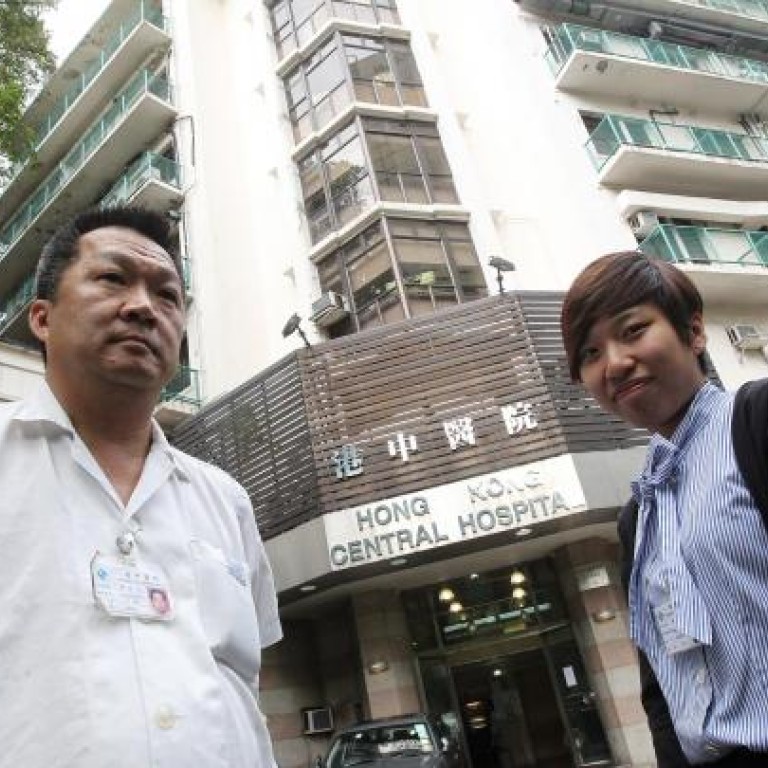
Hong Kong Central Hospital closes after 46 years
Sadness as court ruling forces facility to shut after nearly half a century of providing cheap private care, including 60pc of abortions every year
Staff and patients wept as the Hong Kong Central Hospital in Mid-Levels closed yesterday.
It became the first private hospital to shut in the city after a court ruling ordering it to vacate the site by tomorrow.
Bosses had urged the landlord, the Anglican Church, to allow it to stay until October 30, but as of yesterday, it had not received an answer.
The private hospital, the city's largest provider of abortions, has for 46 years offered low-cost services to patients who would struggle to afford private care elsewhere.
The closure has led to fears women could be forced to seek illegal or unsafe terminations.
"Even though the hospital is old and small, it had an important role in the private healthcare system," said medical superintendent Dr Cheng Chun-ho.
"We provide a relatively cheap service to those grass roots-level patients who cannot afford other private institutions and did not want to join the long queues in public hospitals."
The Court of First Instance ruled three months ago that the hospital would have to leave the site on Lower Albert Road, after its lease ran out in June last year.
Cheng said most medical equipment had been sold and he has been helping staff seek jobs.
All clinical services were shut down by 10pm yesterday as staff said their goodbyes. Cheng said the accounting office would continue to operate next week.
Chan Chun-man, 50, a valet and doorman at the hospital for more than a decade, and Doris Tam, 25, a member of the admissions staff for five years, were both sad to leave yesterday. Chan said: "A hospital is a life-saving place. It should not be allowed to close down like this."
He said the government had not been helpful in solving the dispute on the tenancy or providing another site.
The land was provided by the church in 1966, in an attempt to help doctors fleeing the mainland carry on their practices.
The hospital was run by a trust and was well-known for its safe and cheap abortion services. It carried out about 6,000 abortions every year, 60 per cent of the total carried out in the city.
Cheng said the strength of the abortion unit was not down to a conscious decision by management, but rather the fact that "the patients chose us for our service".
He said it exposed the inadequacy of abortion services and sex education in the city.
The Family Planning Association said it could expand its abortion service from 2000 to 3000 terminations a year.
But it only serves women who are up to 10 weeks pregnant, while it is legal to terminate pregnancy up to 24 weeks with the permission of two doctors.
Public hospitals conduct about 1,000 abortions each year, while many other private hospitals are reluctant to perform any termination of pregnancy for religious reasons.
The Anglican church denied suggestions the abortion service was the reason it decided to step up its redevelopment plans.
The dispute over the tenancy first broke out in 2009, when hospital bosses were told the building would have to make way for a HK$800 million plan for a museum and gallery.

